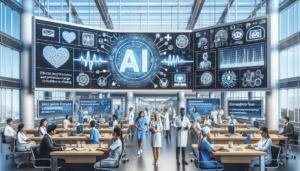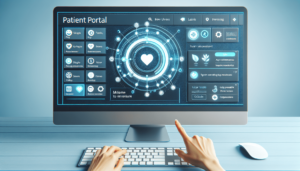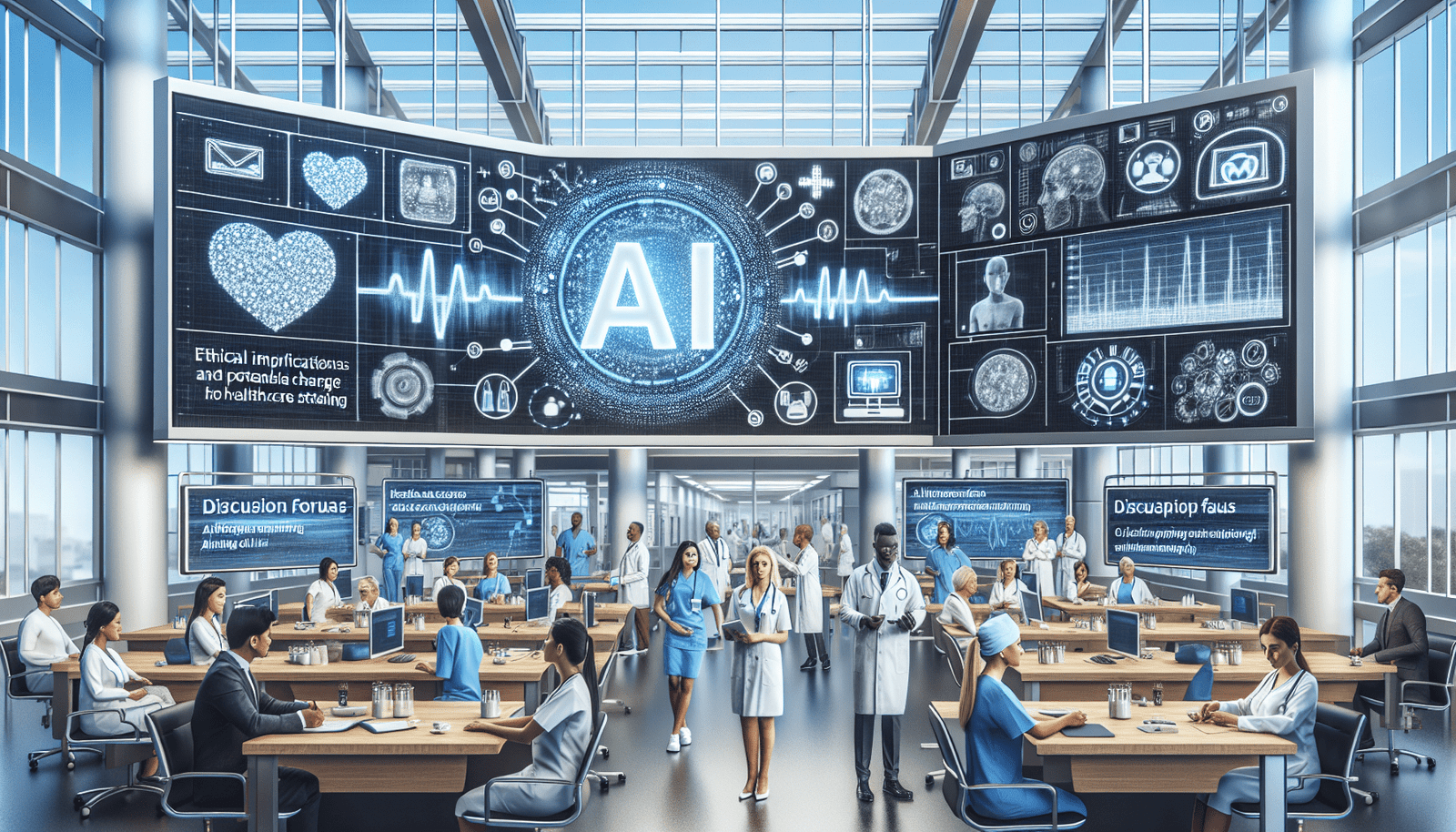Maximizing Marketing Strategies in Healthcare with AI
Have you ever wondered how artificial intelligence (AI) can transform the way marketing is done in the healthcare industry? In this article, we will explore the various ways AI can be utilized to maximize marketing strategies in healthcare. From personalized messaging to predictive analytics, AI has the potential to revolutionize the healthcare marketing landscape. Let’s dive into the world of AI-powered healthcare marketing together!
Understanding AI in Healthcare Marketing
AI is a technology that mimics human intelligence to perform tasks such as data analysis, problem-solving, and decision-making. In healthcare marketing, AI can be used to analyze large amounts of data to identify trends, predict patient behavior, and automate marketing processes. AI-powered tools and platforms can help healthcare organizations target the right audience, personalize messaging, and measure the effectiveness of marketing campaigns.
Benefits of AI in Healthcare Marketing
Utilizing AI in healthcare marketing can bring a multitude of benefits to organizations looking to optimize their marketing strategies. Some of the key advantages of incorporating AI into healthcare marketing efforts include:
- Personalized Messaging: By analyzing patient data, AI can help marketers create personalized messaging that resonates with individual patients. This can lead to higher engagement and conversion rates.
- Predictive Analytics: AI can analyze data from past marketing campaigns to predict future patient behavior and trends. This allows marketers to make data-driven decisions and optimize their marketing strategies for better outcomes.
- Automation: AI-powered tools can automate repetitive marketing tasks such as email marketing, social media management, and lead scoring. This saves time and resources for healthcare organizations.
- Improved ROI: By targeting the right audience with personalized messaging and predictive analytics, healthcare organizations can improve their return on investment (ROI) for marketing campaigns.
- Enhanced Patient Experience: AI can help healthcare organizations deliver personalized and relevant content to patients, improving their overall experience with the brand.

This image is property of images.pexels.com.
AI Applications in Healthcare Marketing
AI can be applied in various ways to enhance healthcare marketing strategies and deliver better outcomes for organizations. Let’s explore some of the common applications of AI in healthcare marketing:
Data Analysis and Segmentation
- Data is a crucial component of marketing strategies in healthcare. AI can analyze large amounts of patient data to identify patterns, trends, and insights that can be used to create targeted marketing campaigns. By segmenting patients based on demographics, behavior, and preferences, healthcare organizations can deliver personalized messaging that resonates with individual patients.
Chatbots
- Chatbots powered by AI can provide real-time assistance to patients on healthcare websites and social media platforms. These chatbots can answer common questions, schedule appointments, and provide information about services. By using chatbots, healthcare organizations can improve patient engagement and satisfaction while reducing the workload on customer service teams.
Predictive Analytics
- Predictive analytics uses AI to analyze past data and predict future outcomes. In healthcare marketing, predictive analytics can be used to forecast patient behavior, identify high-value patients, and optimize marketing strategies for better results. By leveraging predictive analytics, healthcare organizations can make informed decisions about where to allocate resources and which marketing channels to focus on.
Content Personalization
- AI can analyze patient data to create personalized content that resonates with individual patients. By delivering customized messages, offers, and information to patients based on their preferences and behavior, healthcare organizations can increase engagement and conversion rates. Personalized content can help build stronger relationships with patients and improve brand loyalty.
Email Marketing Automation
- Email marketing is a powerful tool for healthcare organizations to communicate with patients and promote services. AI-powered email marketing platforms can automate the process of creating, sending, and analyzing email campaigns. By using AI to personalize email content, segment patient lists, and optimize send times, healthcare organizations can improve the effectiveness of their email marketing efforts.
Implementing AI in Healthcare Marketing
Implementing AI in healthcare marketing requires careful planning, resources, and collaboration between marketing teams and IT departments. Here are some steps to consider when integrating AI into your healthcare marketing strategies:
- Assess Your Data: Before implementing AI, it’s important to assess the quality and quantity of your patient data. AI relies on data to make informed decisions, so ensuring that your data is accurate, relevant, and up-to-date is essential.
- Identify Use Cases: Determine the specific areas of healthcare marketing where AI can be most beneficial for your organization. Whether it’s personalizing messaging, analyzing patient behavior, or automating marketing tasks, identifying use cases will help you prioritize your AI initiatives.
- Evaluate AI Tools: There are numerous AI-powered tools and platforms available for healthcare marketing. Evaluate different options based on your budget, goals, and technical requirements. Look for solutions that offer scalability, flexibility, and integrations with your existing systems.
- Train Your Team: Implementing AI requires training and upskilling your marketing team to understand how to use AI tools effectively. Provide training sessions, resources, and support to help your team adapt to the new technology and maximize its potential.
- Measure Success: Set clear KPIs and metrics to evaluate the impact of AI on your healthcare marketing strategies. Monitor key performance indicators such as engagement rates, conversion rates, and ROI to measure the success of your AI initiatives and make data-driven decisions.

Case Study: AI in Healthcare Marketing
Let’s take a look at a real-world example of how AI can be implemented in healthcare marketing to drive results:
Case Study: AI-Powered Personalization
Background: A healthcare organization wanted to improve patient engagement and conversion rates for their telehealth services. They decided to implement AI-powered personalization to deliver customized messaging to patients based on their preferences and behavior.
Implementation: The organization utilized AI to analyze patient data and segment patients into different groups based on demographics, health conditions, and engagement levels. They created personalized email campaigns, social media ads, and website content tailored to each patient segment.
Results: By implementing AI-powered personalization, the healthcare organization saw a 30% increase in patient engagement, a 20% increase in conversion rates for telehealth services, and a 25% improvement in ROI for their marketing campaigns. Patients responded positively to the personalized messaging, leading to higher satisfaction and brand loyalty.
Future Trends in AI Healthcare Marketing
As AI continues to evolve and advance, healthcare organizations can expect to see new trends and innovations in AI-powered marketing strategies. Some of the future trends in AI healthcare marketing include:
- Voice Search Optimization: With the rise of voice assistants such as Alexa and Siri, healthcare organizations can optimize their content for voice search to reach patients who are using voice-enabled devices to search for healthcare information.
- Virtual Reality (VR) and Augmented Reality (AR): VR and AR can be used to create immersive healthcare experiences for patients, such as virtual tours of facilities, educational simulations, and interactive training programs. AI can enhance VR and AR applications by personalizing content and analyzing patient interactions.
- Blockchain Technology: Blockchain technology can be used to securely store and manage patient data, enabling healthcare organizations to leverage AI for data analysis and marketing campaigns while ensuring patient privacy and security.
- Machine Learning Algorithms: Machine learning algorithms can be trained to analyze complex datasets and make predictions about patient behavior, trends, and outcomes. By harnessing the power of machine learning, healthcare organizations can enhance their marketing strategies and stay ahead of the competition.
Conclusion
As AI continues to revolutionize the healthcare industry, marketing strategies in healthcare are also evolving to leverage the power of AI. By understanding the benefits, applications, and implementation of AI in healthcare marketing, organizations can maximize their marketing efforts, improve patient engagement, and drive better outcomes. Whether it’s personalizing messaging, predicting patient behavior, or automating marketing tasks, AI has the potential to transform the way healthcare organizations connect with patients and deliver value. Are you ready to take your healthcare marketing to the next level with AI? It’s time to harness the power of AI and optimize your marketing strategies for success in the digital age!

